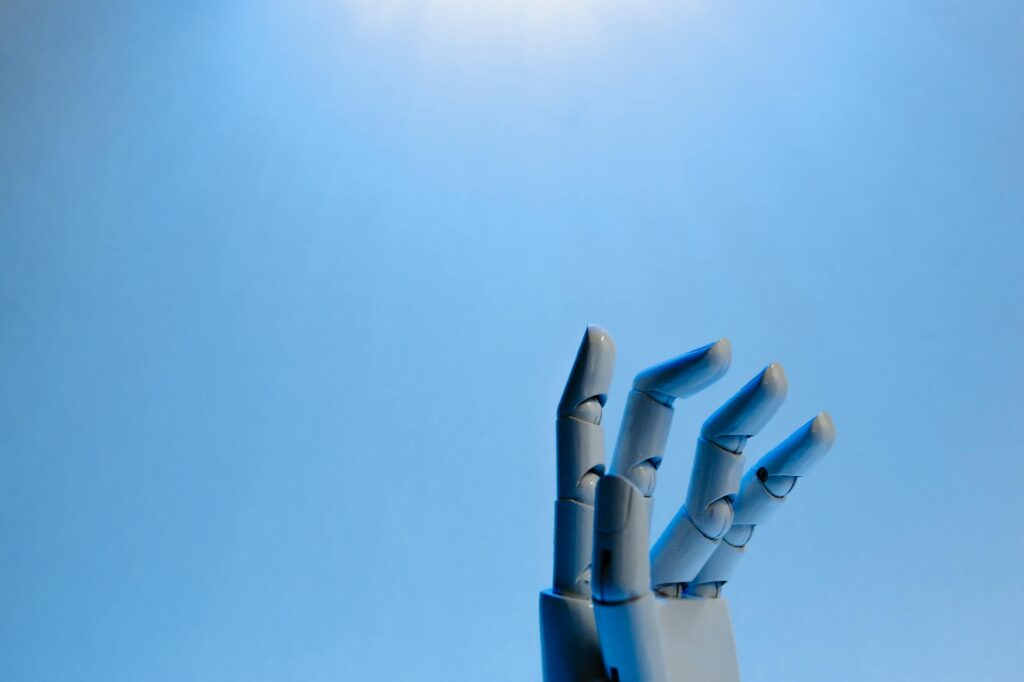The relentless march of artificial intelligence is no longer a futuristic concept but a present reality, reshaping the very fabric of global industries. Its omnipresent and rapidly accelerating impact is forcing every sector, from the most imaginative creative studios to the intricate production lines of manufacturing plants, to confront an undeniable truth: their future must be fundamentally redefined. This isn’t merely about adopting new tools; it’s about a paradigm shift in how work is conceived, executed, and valued. Businesses that once thrived on established models are now grappling with the imperative to innovate, upskill their workforces, and reimagine their core operations. This article will delve into the profound ways AI is catalyzing this transformation, exploring the challenges and unparalleled opportunities it presents for a resilient, forward-looking industrial landscape.
The seismic shift in the creative landscape
For centuries, human creativity was considered an untouchable domain, a bastion immune to automation. AI is dismantling that notion, not by replacing human ingenuity entirely, but by augmenting it in powerful, unprecedented ways. In sectors like advertising, graphic design, content creation, and music production, AI tools are becoming indispensable partners. Imagine a marketing team using AI to generate hundreds of ad copy variations in minutes, testing them for effectiveness, and identifying optimal messaging at scale. Designers are leveraging AI to rapidly prototype concepts, create intricate illustrations, or even generate entire visual identities based on a few prompts. Musicians employ AI to compose melodies, orchestrate complex arrangements, or even master tracks. This shift means that the value moves from rote execution to strategic oversight, prompt engineering, and the critical curation of AI-generated outputs. Creative professionals are now becoming expert collaborators with intelligent systems, focusing on the conceptual and emotional resonance that only human insight can provide, while AI handles the iterative, labor-intensive tasks.
Reinventing manufacturing and operations
Beyond the abstract world of ideas, AI’s tangible impact is revolutionizing the physical realm of manufacturing and industrial operations. The concept of Industry 4.0 is largely underpinned by artificial intelligence, driving efficiencies and capabilities that were previously unimaginable. Predictive maintenance, for example, uses AI to analyze sensor data from machinery, anticipating equipment failures before they occur. This dramatically reduces costly downtime and extends the lifespan of assets. In quality control, AI-powered vision systems can detect minuscule defects on assembly lines with far greater speed and accuracy than human eyes, ensuring higher product quality and reducing waste. Furthermore, AI is optimizing complex supply chains, from forecasting demand with unparalleled precision to orchestrating logistics and inventory management across vast global networks. Smart factories are emerging, where AI acts as the central nervous system, connecting robots, sensors, and production lines into a cohesive, intelligent ecosystem that constantly learns and self-optimizes for maximum output and minimal resource consumption.
Strategic imperative: Upskilling and adapting workforces
The rapid integration of AI across industries necessitates a proactive and substantial investment in human capital. The conversation is shifting from fears of widespread job displacement to the more nuanced reality of job transformation. Roles will evolve, demanding new competencies and a continuous learning mindset. Businesses must prioritize upskilling and reskilling initiatives to prepare their employees for this AI-powered future. This involves fostering AI literacy – understanding how AI works, its capabilities, and its limitations. Crucial skills will include data analysis, prompt engineering (the art of effectively communicating with AI models), and critical thinking to evaluate AI outputs. Moreover, fostering an environment where humans and AI collaborate seamlessly will be paramount. Companies that invest in robust training programs, cultivate a culture of adaptability, and empower their employees to leverage AI as a tool for innovation will be the ones that thrive. The table below illustrates some key skill shifts anticipated in an AI-dominated landscape:
| Skill Type | Traditional Focus | AI-Augmented Focus |
|---|---|---|
| Data analysis | Manual data collection & interpretation | Interpreting AI insights, ethical data use |
| Problem-solving | Identifying & resolving issues directly | Defining problems for AI, evaluating AI-generated solutions |
| Content creation | Original writing/design from scratch | Prompt engineering, curating AI outputs, editing |
| Decision-making | Intuition & experience-based | Data-driven, leveraging AI predictions & simulations |
| Customer service | Handling routine inquiries | Managing complex cases, empathic problem-solving (AI handles routine) |
Ethical considerations and the future of innovation
As AI’s influence expands, so too do the ethical and societal considerations that industries must address. Questions surrounding data privacy, algorithmic bias, accountability for AI decisions, and the potential for job disruption are not minor footnotes but central tenets of responsible AI adoption. Businesses are increasingly challenged to develop and deploy AI systems that are fair, transparent, and secure. This requires robust governance frameworks, ethical guidelines, and a commitment to continuous monitoring and auditing of AI models. However, navigating these challenges also unlocks new avenues for innovation. AI for social good, for instance, holds immense promise in areas like personalized medicine, climate modeling, and disaster response. Companies that prioritize ethical AI development will not only build greater trust with their customers and employees but will also position themselves at the forefront of a new wave of innovation, where technological advancement is harmonized with societal well-being and responsible progress.
The omnipresent and rapidly accelerating impact of AI is undeniably forcing every industry to fundamentally redefine its future. From the nuanced brushstrokes of creative endeavors to the intricate mechanics of manufacturing lines, AI is not merely a tool but a foundational force reshaping operational paradigms and strategic imperatives. This journey demands more than just technological adoption; it calls for a proactive transformation in workforce development, ethical governance, and a bold reimagining of value creation. Industries that embrace AI as a partner for innovation, fostering a culture of continuous learning and responsible implementation, will not only survive but thrive in this new era. The future belongs to those who view AI not as a threat, but as an unparalleled opportunity to unlock unprecedented levels of efficiency, creativity, and societal advancement.
